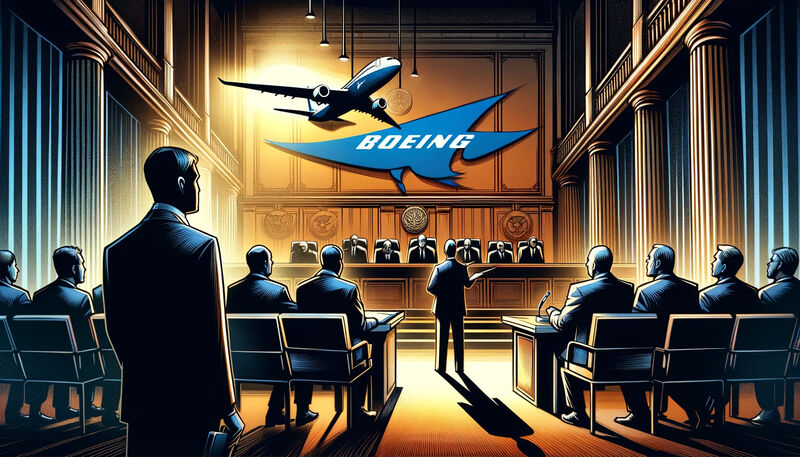Is Boeing in Big Trouble? 10 More Whistleblowers Surface After Sudden Deaths of Two

In an unfolding drama that casts a long shadow over Boeing, the aerospace giant now faces allegations of potential danger to ten more whistleblowers following the mysterious deaths of Joshua Dean and John Barnett. The ongoing saga has reignited debates about safety and whistleblower protection at one of the world's most prominent aerospace manufacturers.
The Mysterious Deaths That Shook Boeing
Joshua Dean, 45, employed by Spirit AeroSystems, a key subcontractor for Boeing, died on May 30 due to a rapidly progressing mystery infection. His death followed closely on the heels of John Barnett, a former production-quality manager for Boeing's 787 airliner. Barnett's life ended tragically in March, with police citing an apparent self-inflicted gunshot in a South Carolina hotel parking lot. This occurred shortly after he failed to appear for a crucial part of his testimony in a significant lawsuit against Boeing.
The Whistleblower Controversy
Both Dean and Barnett were vocal critics of Boeing, challenging the company's public assertions about prioritizing safety. Dean had raised alarms about manufacturing defects in 737 Max parts in 2022, while Barnett had testified about safety concerns before his untimely death. Their criticisms echo a broader sentiment among Boeing employees, some of whom doubt the official explanation for Barnett’s death, suggesting he had powerful adversaries within the company.
Legal and Corporate Repercussions
The lawyers representing Dean and Barnett's families, Robert Turkewitz and Brian Knowles, are advocating for a thorough investigation into the circumstances surrounding their deaths. The legal team met with officials in South Carolina to discuss the ongoing inquiries and express their concerns about the potential intimidation of other whistleblowers.
Boeing’s Financial and Leadership Challenges
Amidst this controversy, Boeing reported a first-quarter loss of $355 million, pointing to declining revenues and ongoing crises within the company. Additionally, the recent announcement of CEO Dave Calhoun’s planned resignation by the end of 2024 has been seen as a response to the unrelenting safety challenges and internal strife facing the corporation.
Advocacy for Truth and Safety
Ed Pierson, a former senior manager at Boeing’s 737 factory and founder of the Foundation for Aviation Safety, has been vocal about the company’s reluctance to acknowledge truths that could undermine its public image. Despite his efforts to halt production of the 737 Max following two fatal crashes in 2018 and 2019 that killed 346 people, production continued until the aircraft were grounded globally.
Congressional and Public Scrutiny
The deaths of the whistleblowers and the allegations of unsafe practices have drawn congressional attention, with ongoing probes and hearings that have kept Boeing in the regulatory spotlight. A 2020 House report described the 737 Max disasters as a result of "repeated and serious failures" by Boeing and regulatory bodies, highlighting the need for significant reforms in aerospace safety and corporate accountability.
The Road Ahead
As the investigations continue and the aerospace community watches closely, the outcomes of these probes and the ensuing legal battles could have profound implications for how whistleblower complaints are handled in the industry. The situation underscores the critical importance of corporate transparency and the protection of those who courageously speak out about potential dangers.
In Conclusion
Boeing's journey through these tumultuous times is far from over. With the legal, financial, and ethical challenges ahead, the aerospace giant must navigate a complex landscape of accountability and reform to restore trust and ensure safety in its operations. The legacy of the whistleblowers and the ongoing scrutiny will undoubtedly play pivotal roles in shaping the future of Boeing and the aerospace industry at large.

